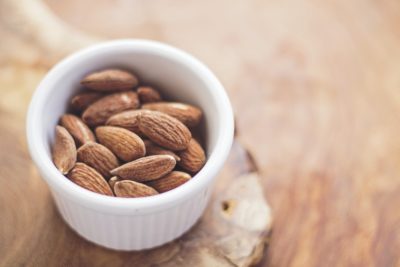6 Tips to Get Through Finals

Students all know that end of semester rush when making it through finals is the only focus. With so much going on, it’s easy to push good nutrition and healthy habits to the bottom of your priority list. It’s important to maintain a healthy lifestyle to minimize stress and achieve your best results when you’re cramming for a big exam (or getting ready for a critical work presentation, for that matter).
Here are some top picks for what to watch out for and what to focus on from Aramark registered dietitian Kelley Magowan, who works with college and university students every day.
DON’T: Consume too much caffeine
Many students seek out caffeine to get them through their all-nighters, but it’s easy to overdo it. Caffeine gives an immediate boost, but afterwards it can leave you jittery, restless and unable to relax. If you choose to consume caffeine, do so in moderation and limit your intake to during the day. That extra cup of coffee can keep you up at night and actually add to your test anxiety. Instead, focus on eating a nutrient-rich, balanced diet to give you the energy you need to stay focused. If you do really need that extra cup of coffee to get you through—go for a smaller size or ask for half decaf.
DON’T: Fall victim to mindless eating
It’s easy to reach for those extra bags of chips or cookies when you’re studying, especially if it’s late at night and it feels like the only option. Overloading yourself with sugar and salt and not eating mindfully will only set you back. There’s nothing wrong with the occasional study treat, but whether you’re in the store or in the dining hall, look for foods that are both nutritious and convenient. Protein bars, whole grain crackers and peanut butter are great snacks to stock up on. Another tip: Set regular breaks to step away from your desk and grab a snack. And if you really want that bag of cookies—enjoy it, but share it with a few study buddies. Your body will thank you later!
DON’T: Forget to hydrate
Staying hydrated will help you feel energized and focused throughout your day. Not drinking enough fluid can leave you with a headache or feeling light-headed. Drink plenty of water while studying.
If you’re tired of plain water, switch it up by adding slices of lemon, orange or cucumber.
DO: Start your day with breakfast
You’ve heard it before: Breakfast is the most important meal of the day! Skipping it can deprive your brain of the fuel it needs to focus. Eat within 2 hours of waking up, and choose a combination of healthy fats, proteins and carbohydrates. If you’re pressed for time, says Kelley (pictured), consider these quick options available in most dining halls:
- Whole grain cereal with milk
- Oatmeal with apples and cinnamon
- Yogurt w/granola and fruit
- Hardboiled egg with toast
DO: Re-fuel every 3-4 hours
Plan study breaks and include light meals or snacks throughout the day to keep your blood sugar and energy levels stable. Carbohydrates are your brain’s preferred energy source. For long lasting energy, look for fiber and start with whole grains, fruits and vegetables. Then, combine it with a protein. This will ensure that you stay full longer and prevent “the crash” we all know so well. Stock up on foods that are nutritious and convenient like fresh fruit, raw veggies, trail mix, granola/protein bars, cheese, yogurt, low sugar breakfast cereals, popcorn, baked tortilla chips, hummus, and cans of tuna.
DO: Prioritize sleep
The quality and quantity of sleep is important not only during exam week, but during the entire semester. College students should get anywhere from 7 to 9 hours of sleep each night. If you find yourself cramming in late night study sessions, you could find yourself less alert and at risk for a weakened immune system, poor memory retention, and, ultimately, added stress. Do your best to put the books down and stick to a regular bed and wake time.
If a full night of sleep just isn’t in the cards, at least try to avoid multiple nights of sleep loss in a row! Your health, mood and test scores will appreciate every extra hour you can get.
Remember, good nutrition and quality sleep is a tried-and-true recipe for success. Try incorporating these habits into your everyday routine. They will help keep you focused and help feed your potential.